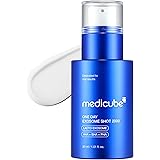The Ultimate Guide to Store-Bought vs. Homemade Natural Deodorant Alternatives for 2024 Fresh and Confident
Are you tired of the endless search for a natural deodorant that actually works? As more people turn to natural alternatives for personal care products, understanding the differences between store-bought and homemade natural deodorants has become crucial. Whether it’s the convenience of store-bought options or the control and customization of homemade solutions, each has its unique benefits.
In this post, we’ll walk you through the key differences between these natural deodorant alternatives, helping you make an informed decision. We’ll explore factors like cost, ingredients, and effectiveness to determine what’s best for your needs. If you’re curious about making the switch or simply wondering which option might be better for you, keep reading to get all the answers.
Check out this informative video on the best natural deodorants that actually work.
Understanding Natural Deodorants
When it comes to staying fresh and smelling good, many of us have used traditional deodorants for years. However, there’s growing interest in natural deodorant alternatives. Let’s explore what these alternatives are and why they might be a better choice for you.
What are Natural Deodorant Alternatives?
Natural deodorant alternatives are products made from ingredients found in nature, aiming to keep you fresh without the use of harsh chemicals. Unlike traditional deodorants, which often contain aluminum and parabens, natural options use safer ingredients that are less likely to irritate your skin.
Some common ingredients found in natural deodorants include:
- Baking Soda: Helps neutralize odors.
- Coconut Oil: Moisturizes and has antibacterial properties.
- Shea Butter: Soothes the skin.
- Essential Oils: Provide a natural scent and antibacterial benefits.
Benefits over Traditional Products
Choosing natural deodorant alternatives can offer several advantages:
- Reduced Skin Irritation: Traditional deodorants often contain harsh chemicals that can irritate the skin. Natural ingredients tend to be gentler and can help prevent rashes and itching.
- Better Health Outcomes: There are concerns about the long-term health effects of ingredients like aluminum, which is commonly found in antiperspirants. Some studies suggest a link between these chemicals and health issues, although more research is needed.
- Environmental Impact: Natural deodorants often come in eco-friendly packaging, making them a more sustainable choice. Plus, the ingredients are typically biodegradable, reducing your carbon footprint.
For more detailed information about natural deodorant alternatives, you can visit Healthline’s guide on deodorant alternatives.

Choosing natural deodorant alternatives doesn’t mean compromising on effectiveness. They aim to keep you fresh and confident throughout the day, using the power of nature.
Store-Bought Natural Deodorants
When you’re in the market for a natural deodorant, store-bought options often come to mind. These products are usually easier to find and are a safe bet since they go through stringent quality controls before hitting the shelves. But what does a store-bought natural deodorant entail? Let’s dive in to explore this category.
Popular Store-Bought Brands
There are several well-known brands that offer store-bought natural deodorants. Here are a few of the most popular ones you’ll encounter:
- Native: Known for its simple ingredient list and variety of scents. Native uses primarily baking soda, coconut oil, and shea butter.
- Schmidt’s: Offers a range of scents and uses ingredients like arrowroot powder and charcoal to absorb moisture.
- Tom’s of Maine: One of the pioneers in natural deodorants, famous for its long-standing commitment to natural and sustainable practices.
- Primal Pit Paste: Known for its strong performance, using baking soda as a key ingredient.
- Kopari: Uses coconut oil as a primary ingredient and is loved for its moisturizing properties.
Choosing one of these brands can make it easier to transition from conventional deodorants to natural alternatives.

Ingredients to Look For
Choosing the right natural deodorant can be overwhelming, given the myriad of ingredients used. Here are some key ingredients to look for and their benefits:
- Baking Soda: Highly effective in neutralizing odor, making it a common choice. However, it can sometimes cause irritation.
- Coconut Oil: Known for its antibacterial properties, which help keep odor-causing bacteria at bay.
- Arrowroot Powder: A natural moisture absorber, helping to keep your underarms dry.
- Shea Butter: Adds a moisturizing element to the formula, which is great if you have sensitive skin.
- Essential Oils (Lavender, Tea Tree, etc.): Not only do they offer pleasant scents, but they also have natural antibacterial properties.
DIY natural Moisturizer for Healthy glow
These ingredients work in harmony to provide you with a natural solution to body odor without harmful chemicals.
Pros and Cons of Store-Bought Options
Store-bought natural deodorants have their upsides and downsides. Here’s a summary to help you decide if they’re right for you:
Pros:
- Convenience: Easily accessible at most retail stores and online.
- Reliability: Passed through quality checks and testing.
- Variety: Wide range of scents and formulations to suit different preferences.
- Transparency: Ingredients are clearly listed, making it easier to avoid allergens or irritants.
Cons:
- Price: Often more expensive than conventional deodorants.
- Effectiveness: Some may find they need to reapply throughout the day.
- Irritation: Ingredients like baking soda can cause irritation in some people.
While store-bought natural deodorants are a convenient option, weighing these pros and cons can help you make an informed choice.
 Photo by doTERRA International, LLC
Photo by doTERRA International, LLC
When considering switching to natural deodorant alternatives, store-bought options offer a reliable and straightforward path. With a variety of brands and carefully selected ingredients, these products can fit seamlessly into your daily routine. But always remember to read the ingredient list and consider any skin sensitivities you may have before making a purchase.
Homemade Natural Deodorants
If you’re looking to switch to natural deodorant alternatives, making your own at home might be the right choice for you. It’s simpler than you might think and allows you to control what ingredients go on your skin. Let’s walk through the basic recipes, essential ingredients, and the pros and cons of homemade natural deodorants.
Basic Recipes for Homemade Deodorants
Making your own deodorant at home can be a fun and rewarding project. Here are a couple of easy recipes using ingredients you might already have in your kitchen.
Coconut Oil and Baking Soda Deodorant
This simple recipe uses coconut oil, baking soda, and cornstarch.
Ingredients:
- 1/4 cup baking soda
- 1/4 cup cornstarch
- 5-6 tablespoons coconut oil
- Optional: Essential oils for fragrance
Instructions:
- Mix the baking soda and cornstarch in a bowl.
- Add the coconut oil, mixing it until it becomes a paste-like consistency.
- If you prefer a scented deodorant, add 5-10 drops of your favorite essential oil.
- Store the mixture in a small jar or an old deodorant container.

Ingredients to Use and Avoid
When crafting your homemade deodorant, the choice of ingredients is crucial for both effectiveness and safety. Here’s a guide on what to use and what to avoid.
Ingredients to Use:
- Coconut Oil: Known for its antimicrobial properties.
- Shea Butter: Excellent for moisturizing.
- Arrowroot Powder: Helps to absorb moisture.
- Baking Soda: Neutralizes odor.
Ingredients to Avoid:
- Aluminum Compounds: Found in many commercial deodorants and linked to health concerns.
- Parabens: Used as preservatives but can disrupt hormones.
- Phthalates: Often used to make fragrances last longer but can be harmful to health.
For more information on which ingredients to avoid, check out this guide.
Pros and Cons of Homemade Options
Homemade natural deodorants come with a variety of advantages but also some potential drawbacks. Let’s break them down:
Pros:
- Control Over Ingredients: You know exactly what’s in your deodorant.
- Cost-Effective: The ingredients are relatively inexpensive, especially when bought in bulk.
- Customizable: Tailor the scent and texture to your personal preferences.
Cons:
- Effort and Time: Making deodorant takes time and effort.
- Storage and Shelf-Life: Homemade products might not last as long as commercial ones.
- Effectiveness: It might take some trial and error to find a formula that works best for you.
Read more about the pros and cons of using natural deodorants here.
Making the switch to natural deodorant alternatives can be a personal and satisfying journey. Armed with the right recipes and knowledge, you can create a product that is both effective and safe.
Comparative Analysis: Store-Bought vs. Homemade Natural Deodorants
Choosing between store-bought and homemade natural deodorants can be tricky. Each has its benefits and drawbacks. Let’s take a deeper look at how they compare in terms of effectiveness, cost, and environmental impact.
Effectiveness in Odor Control
How well does each option work at keeping those pits fresh? It mostly comes down to the ingredients.
- Store-Bought Deodorants: These products usually combine several powerful ingredients that can effectively combat odor. Many contain baking soda, essential oils, and other natural ingredients known for their antimicrobial properties. For instance, brands like Schmidt’s often receive positive reviews for odor control. They are designed to keep you smelling great all day.
- Homemade Deodorants: DIY recipes often use ingredients such as coconut oil, baking soda, and arrowroot powder. While they can be effective, their performance can vary. Some report excellent results, while others need to tweak the recipe to find what works for them. According to Vegetarian Zen, homemade formulations can work just as well but may require some trial and error.

Cost-Effectiveness
When it comes to cost, both options have their pros and cons.
- Store-Bought Deodorants: These can be more expensive upfront. Premium natural deodorants can cost between $8 and $15 per stick. Brands like Native or Schmidt’s are examples where you pay for convenience and consistent quality. Over time, these costs add up, especially if you’re purchasing for a family.
- Homemade Deodorants: Making your own can be significantly cheaper. Basic ingredients like coconut oil, baking soda, and essential oils can be purchased in bulk and used for multiple batches. A small investment in ingredients can save you money in the long run. The Reddit page suggests that DIY deodorant costs just a fraction of store-bought options.
Environmental Impact
Sustainability is a top concern for many people choosing natural deodorants. Let’s see how each fares.
- Store-Bought Deodorants: Many brands are making strides in reducing their environmental footprint. They use recyclable packaging and source sustainable ingredients. However, there’s still the issue of waste from plastic tubes and transportation emissions.
- Homemade Deodorants: DIY deodorants shine in this category. By reusing containers and buying ingredients in bulk, you can significantly reduce waste. According to Aware Deodorant Blog, homemade options often generate less packaging waste, especially when ingredients are sourced locally or in environmentally friendly packaging.
Here’s a quick comparison table for clarity:
| Feature | Store-Bought Deodorants | Homemade Deodorants |
|---|---|---|
| Odor Control | Generally consistent and reliable | Varies, requires customization |
| Cost | $8-$15 per stick | Pennies per application |
| Environmental Impact | Moderate, with some sustainable options | Low, especially with reusable containers |
In summary, both store-bought and homemade natural deodorants have their strengths. Store-bought deodorants win on convenience and consistent quality, while homemade versions offer cost savings and greater control over ingredients. Environmental impact varies, but homemade options generally have the edge.
Choosing the right option depends on your priorities, whether it’s efficacy, cost, or sustainability. Interested in exploring natural deodorant alternatives further? Check out this comprehensive guide on Healthline.

Final Thoughts on Choosing Natural Deodorant Alternatives
Choosing between store-bought and homemade natural deodorants can feel overwhelming, but understanding the core differences can help you make an informed decision. Natural deodorant alternatives cater to different needs and preferences, so it’s essential to know what works best for you.
Personal Needs and Preferences
When selecting a natural deodorant, consider your routine, sensitivity, and lifestyle. Do you like applying deodorant quickly or enjoy making products yourself? Store-bought options are convenient and often come in various scents and formulas. For example, Lavender Goat Milk Natural Deodorant provides a soothing, aromatic experience. On the other hand, homemade versions allow for customization to meet specific skin needs, such as using Zinc Oxide for sensitive skin.
medicube Exosome Shot Zero 2,000 PPM Spicule Facial Serum | Liquid Skin Booster Serum | Exosome, AHA+BHA+PHA | Pore Care, Dead Skin Cells, Skin Texture | Korean Skincare, 1.01 fl.oz
$19.99 (as of February 21, 2026 09:53 GMT -04:00 – More infoProduct prices and availability are accurate as of the date/time indicated and are subject to change. Any price and availability information displayed on [relevant Amazon Site(s), as applicable] at the time of purchase will apply to the purchase of this product.)Mighty Patch Original Patch from Hero Cosmetics – #1 Hydrocolloid Acne Pimple Patches for Face, Shrinking Zits & Whiteheads in 1 Use, Nighttime Spot Pimple Stickers for Face, 36 Count
$12.99 (as of February 21, 2026 09:53 GMT -04:00 – More infoProduct prices and availability are accurate as of the date/time indicated and are subject to change. Any price and availability information displayed on [relevant Amazon Site(s), as applicable] at the time of purchase will apply to the purchase of this product.)Key Takeaways for Your Choice
To help narrow down your decision, here are some key points to consider:
- Ingredients: Homemade deodorants often use simple, natural ingredients like coconut oil and baking soda. Store-bought varieties may offer specialized ingredients for various needs, like lavender or tea tree oil.
- Cost: Homemade options are typically cheaper since you purchase ingredients in bulk. However, store-bought natural deodorants save time and effort.
- Effectiveness: Some people find certain natural ingredients work better for their body chemistry. It’s worth trying different options, such as Primal Pit Paste or a DIY mix of coconut oil and arrowroot powder.
- Environmental Impact: Homemade deodorants have minimal packaging waste and can be stored in reusable containers. Some store-bought natural deodorants also come in eco-friendly packaging.

Why It Matters
Switching to natural deodorant alternatives isn’t just about reducing exposure to chemicals. It’s part of a broader move toward a healthier and more sustainable lifestyle. When you choose a natural option, you’re supporting a movement toward wellness and environmental responsibility. For inspiration on natural alternatives, check out Healthline’s guide which showcases easy-to-use natural options like witch hazel and apple cider vinegar.
Ultimately, selecting the best natural deodorant alternative boils down to your personal needs and convictions. Whether you choose the convenience of store-bought products or the customization of homemade solutions, there’s a natural option that can work for you. Explore your preferences, experiment with different ingredients, and find what suits your lifestyle best.
Conclusion
Choosing between store-bought and homemade natural deodorants boils down to personal preference and priorities. Store-bought options offer convenience and tested formulas, while homemade solutions provide control over ingredients and customization.
Natural deodorant alternatives like baking soda, coconut oil, and witch hazel are effective and kind to your body. Making informed choices about personal care has a profound impact on your overall well-being.
Explore natural options and share your experiences. Your feedback can help others make better choices for a healthier lifestyle. Thank you for reading and considering natural deodorant alternatives.









